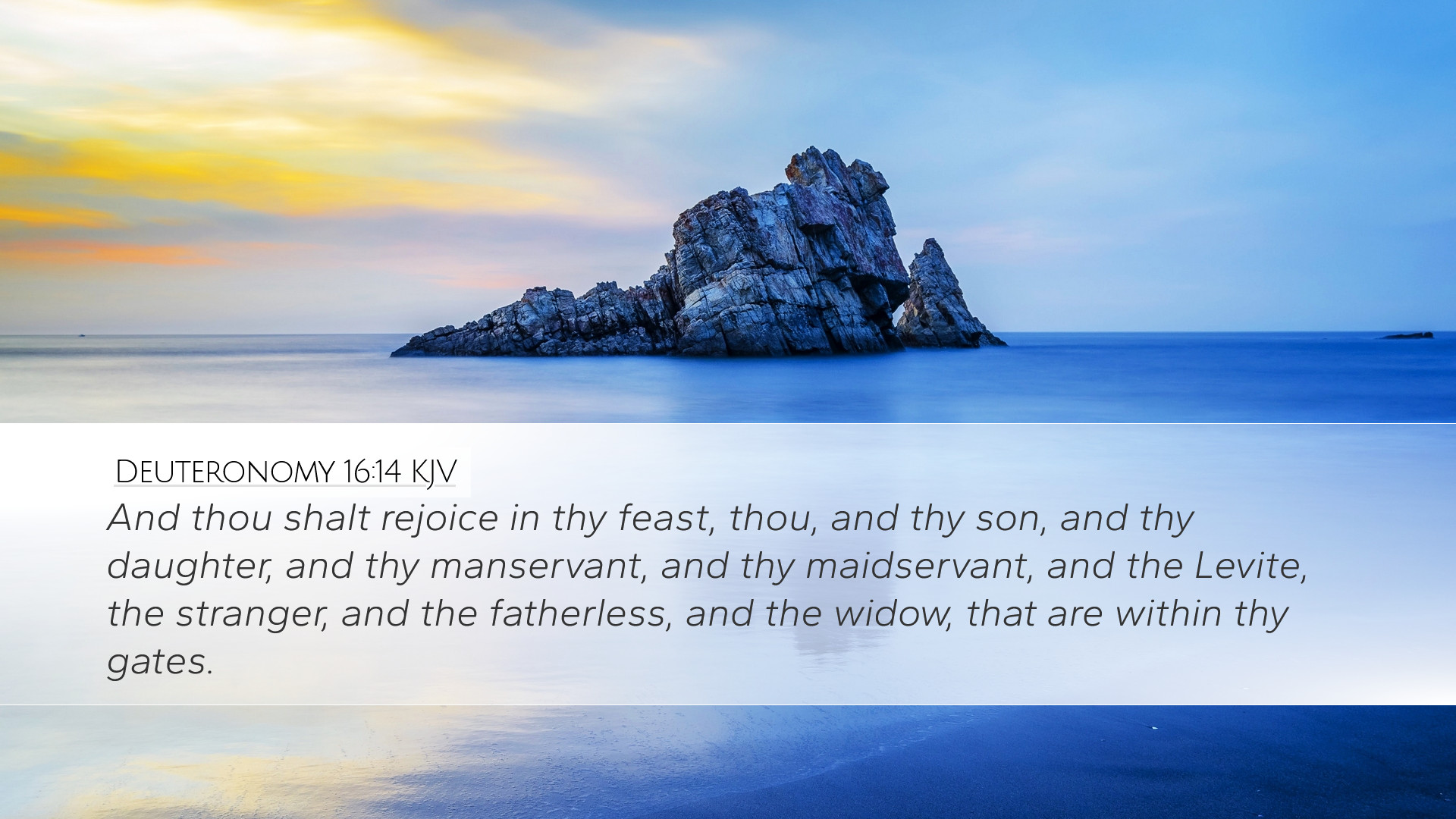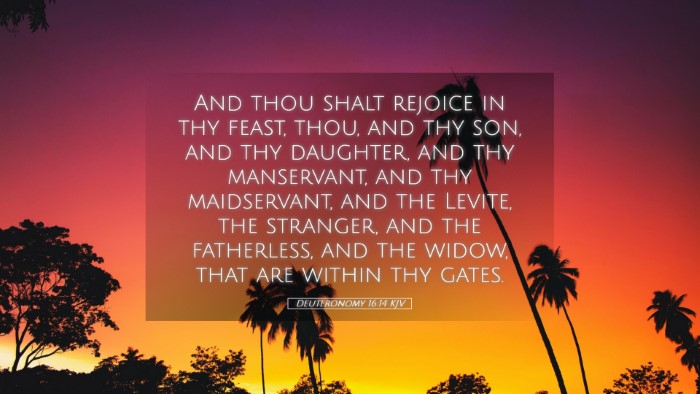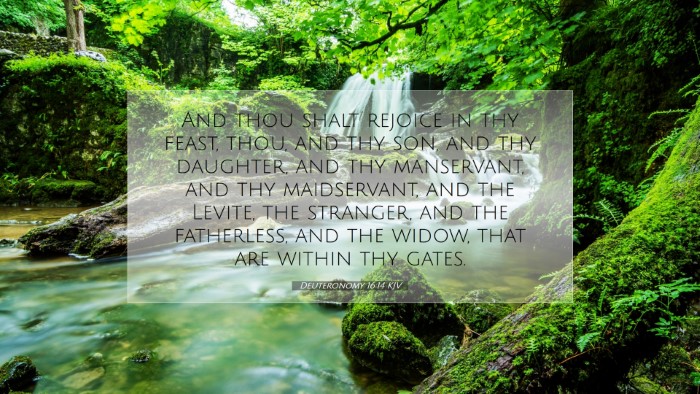Commentary on Deuteronomy 16:14
Verse: "And thou shalt rejoice in thy feast, thou, and thy son, and thy daughter, and thy manservant, and thy maidservant, and the Levite that is within thy gates, and the stranger, and the fatherless, and the widow, that are among you, in the place which the Lord thy God hath chosen to place his name there."
Introduction
This verse serves as a directive for the celebration of feasts, highlighting the communal aspect of rejoicing in the presence of God. The command to rejoice is not solely about personal enjoyment; it encompasses the entire community, particularly those who are often marginalized. The significance of these instructions can be drawn from various public domain commentaries.
Contextual Background
Deuteronomy, often referred to as the "second law," contains Moses’ speeches to the Israelites before they enter the Promised Land. In this particular chapter, the focus is on the various feasts that the Israelites are commanded to observe. These feasts are not only times of celebration but also serve to remember God's providence and to foster community among God's people.
Exegesis of the Verse
Divine Command to Rejoice
Matthew Henry emphasizes that the command to rejoice is a perpetual mandate, implying that worship is to occur joyfully. He suggests that happiness in worship is a reflection of the heart's response to God’s goodness. The celebration during these feasts also acts as a reminder of God's blessings, fostering a spirit of gratitude among the participants.
Inclusivity in Celebration
Albert Barnes points out the inclusivity inherent in the command. The verse specifies various groups that should participate: family members, servants, and those who are often overlooked—like the Levite, the stranger, the fatherless, and the widow. This inclusivity serves as a model for societal norms, encouraging care and fellowship among all community members, which aligns with the broader scriptural call to love one's neighbor.
Addressing Community Needs
Adam Clarke reflects on the logistical aspects of the feasts, noting that such gatherings provide an opportunity for social support. By inviting the marginalized, the community not only fulfills God’s command but also strengthens its societal fabric. Clarke remarks that this act of sharing joy and resources reflects the character of God Himself, who is attentive to the needs of the vulnerable.
Theological Implications
The Nature of God’s House
Deuteronomy 16:14 highlights the significance of "the place which the Lord thy God hath chosen." Matthew Henry interprets this phrase as emphasizing the importance of worship in the appointed place, suggesting that God's chosen space becomes a sanctuary for His people. The place signifies the unity of God with His people, where divine presence is acknowledged, and joy is cultivated.
Joy as an Act of Worship
Albert Barnes elaborates on joy as an integral aspect of worship. This joy is not mere emotional ecstasy but is rooted in reverence and response to God's sovereign goodness. Thus, the act of rejoicing in communal feasts becomes a powerful form of worship that acknowledges God's providence and sustenance.
Practical Applications for Today
Cultivating Community
The insights from this verse underscore the importance of community in the life of faith. Modern congregations are encouraged to create environments where all members, especially the marginalized, feel welcome and included. Regular celebrations that invite diverse groups can help foster a sense of belonging and care, much like the ancient feasts.
Celebrating God’s Blessings
In a time of individualism, this passage serves as a reminder for believers to collectively acknowledge God's blessings. Adam Clarke suggests that contemporary worship should incorporate times of reflection and gratitude where the community can collectively recount the ways God has been faithful, thus enriching their congregational life.
Building a Culture of Joy
Faith communities can strive to build a culture of joy that transcends circumstances. Matthew Henry encourages believers to embody the joy of the Lord as they gather, fostering an atmosphere where the joy of the Lord can be palpable, enhancing collective worship experience. This can be especially important in a world rife with challenges and stress.
Conclusion
Deuteronomy 16:14 offers deep insights into the nature of worship, community, and divine inclusivity. By drawing from the perspectives of stalwarts like Matthew Henry, Albert Barnes, and Adam Clarke, contemporary readers can find a wealth of understanding applicable to today's church context. As pastors, students, theologians, and scholars reflect upon this passage, they are called to champion the principles of joy, inclusivity, and community celebration in their respective contexts.


